It seems odd to describe the death of a man of 82 years as untimely. Yet the fact that Ken Minogue died on a plane returning from a conference in the Galapagos Islands where he had delivered an admired address, preparing to promote the latest translation of his new book, and ‘in mid-sentence’ (as Peter Coleman wrote here in a graceful tribute last week) suggests that the deceased still had a great deal of life in him. But then Ken always had a great deal of life in him — several lives, indeed — and that life will continue to influence people and politics in three continents for some time to come.
Ken was born in New Zealand and educated in Australia (Sydney Boys’ High School and Sydney University). He never lost touch with either country. Once he had achieved some academic eminence in Britain, he returned regularly to write, to lecture, and (inevitably) to take part in public controversy in both. He was later awarded Australia’s Centenary Medal for services to political science. But this success abroad took a little time.
Ken left Australia in the early Fifties as a deckman on a Russian ship headed for Odessa. Having made his way to London, he became in succession an aspiring writer, a schoolteacher and a university lecturer. Ken soon found his vocation, however, as a lecturer at the London School of Economics, where the distinguished Tory philosopher Michael Oakeshott was head of its politics department. Ken taught there for almost 50 years, succeeding Oakeshott as professor of politics in due course, but also becoming a fixture in the various institutes, learned societies and salons of the London political scene. By the early 1970s he was a central figure in a very diverse set of writers, academics, politicians and journalists who exerted considerable but largely unnoticed influence on the Tories, then needing travel directions after two election defeats.
It was an unusually brilliant group, including, in addition to Ken and Oakeshott, Bill and Shirley Letwin, Elie Kedourie, Maurice Cowling, Maurice Cranston, P.T. Bauer, Perry Worsthorne, T.E. Utley, Noel Malcolm, Roger Scruton, John Casey, J.B. Kelly and Frank Johnson. It was rooted in three institutions: the LSE, Cambridge (in particular, Peterhouse) and above all the salon run by Shirley Letwin, with whom Ken had a close intellectual friendship.
Shirley’s dinner table, especially after her Sunday tennis parties, was the occasion of extraordinary conversation on topics ranging widely from the latest ballet through the novels of Trollope to the burgeoning oil crisis but usually returning to the troubled state of Toryism. In addition to the above regulars, Shirley’s guests might include Friedrich Hayek, Richard Pipes (of Yale and the Reagan White House), philosopher Freddy Ayer, historian Hugh Thomas, Margaret Thatcher, Michael Portillo or a very young Nigella Lawson. And Ken was almost always at the table, and usually on the tennis court beforehand where he exhibited a powerful, if erratic, Australian serve.
Composed as it was of good talkers and writers with intellectual self-confidence and views on everything, this group exerted influence socially. But it also did so more publicly through outlets such as the Daily Telegraph editorial page, the magazines Encounter and The Spectator (at different times), and the conservative think-tanks then beginning to sprout: the Institute for Economic Affairs, the Centre for Policy Studies, the Salisbury Group (which published an intellectual quarterly edited by Roger Scruton) and the Conservative Philosophy Group, which discussed papers by Oakeshott and others after dinner in the home of Hugh and Antonia Fraser.
Margaret Thatcher was a founder of the CPS, a friend to the IEA and the Salisbury Group and a scholarship girl, still eager to learn, at the CPG, where Ken was an equally regular pundit. Ken, the Letwins, and their dinner-table philosophers gave her wider Tory arguments to buttress the IEA’s classical liberal ones to help shape the new Thatcherite direction of the party. Ken became an ally to the new prime minister in office and a good personal friend afterwards. He has a good claim (or as he might have put it, he risks the guilt) to being a founder of Thatcherism.
Most of the metropolitan media missed all this at the time, but they latched onto it in retrospect and made Ken an academic celebrity. His books were the real foundation of this public reputation: The Liberal Mind, frequently republished; Alien Powers, perhaps his deepest work, an exploration of the roots of all ideologies; and just recently The Servile Mind, which wittily examines how government infantilises its citizens. He also brought together some of the Letwin salon regulars — including Noel Malcolm, Owen Harries and Tim Fuller — in a collection of essays, Conservative Realism, that he felt represented the spirit of the salon. On these solid foundations Ken built a set of more immediate journalistic responses to current affairs in magazines such as Prospect, Quadrant and National Review.
It was not long before he became a prominent public intellectual of the Right (though rarely included in the lists of such). And because he was a brilliant talker, both profound and entertaining, he was regularly invited onto the better debate programs by the BBC.
Ken was, finally, a practical man of affairs. In addition to his academic duties as head of an LSE department, he gave generously of his time and experience to organisations in several countries with whose causes he sympathised: the Michael Oakeshott Society, the Centre for Policy Studies, the Bruges Group, and the Mont Pelerin Society whose president he had been until 2012 and whose conference he had been attending when he died.
In the last 20 years of his life, Ken went into the salon business himself. With his second wife Beverley Cohen he gave a series of lunch and dinner parties at their Fulham home that their generosity also turned into a very high class B&B for visiting intellectuals, Aussies and others. The Robert Conquests, the Tim Fullers, the Roger Kimballs, and (I have to add), the John O’Sullivans were frequent guests. We would join the locals — who might include his son or daughter, his step-daughters, his first wife Val (with whom he remained on very amicable terms), veterans of the Letwin salon, conservative academics/reporters/politicians of the new generation, including Cabinet Minister Oliver Letwin. Bev was a superb cook — many have hymned her steak and kidney pie — Ken a munificent host. And these evenings were rich in friendship and argument until, sadly, they came to an end with Bev’s death three years ago.
Ken, though grieving, never lost his courage or his sense of humour. On his last day on earth Ken made to Ed Feulner, the founding father of the Washington-based Heritage Foundation, a remark that echoes this passage from his recent book: ‘Most Western governments hate me smoking, or eating the wrong kind of food, or hunting foxes, or drinking too much, and these are merely the surface disapprovals, the ones that provoke legislation or public campaigns. We also borrow too much money for our personal pleasures, and many of us are very bad parents. Ministers of state have been known to instruct us in elementary matters, such as the importance of reading stories to our children. Again, many of us have unsound views about people of other races, cultures, or religions, and the distribution of our friends does not always correspond, as governments think that it ought, to the cultural diversity of our society. We must face up to the grim fact that the rulers we elect are losing patience with us.’
This ironic critique of state infantilism, however, is merely the negative side of Ken’s positive attachment to the life lived freely. He lived that way himself, and by his friendship and writing he helped others to live it too.
Got something to add? Join the discussion and comment below.
Get 10 issues for just $10
Subscribe to The Spectator Australia today for the next 10 magazine issues, plus full online access, for just $10.
John O’Sullivan is editor at large of National Review and author of The President, the Pope, and the Prime Minister (Regnery Books).
You might disagree with half of it, but you’ll enjoy reading all of it. Try your first month for free, then just $2 a week for the remainder of your first year.

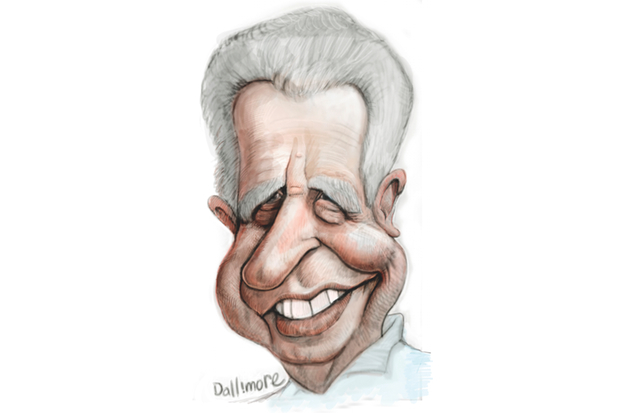
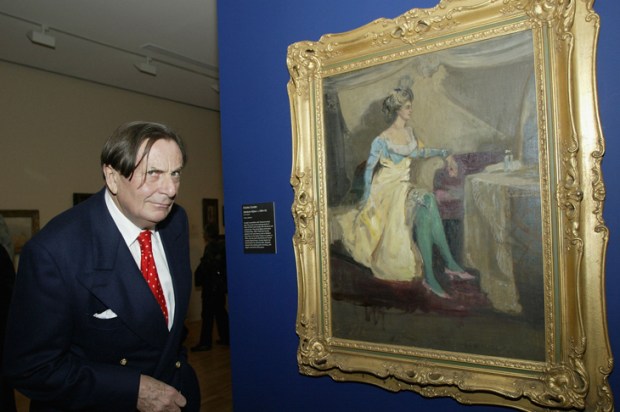


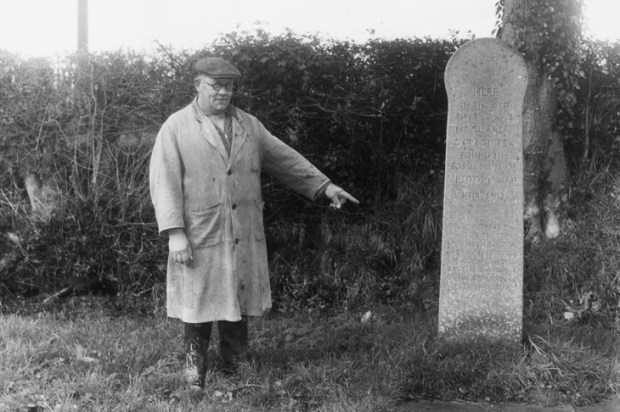
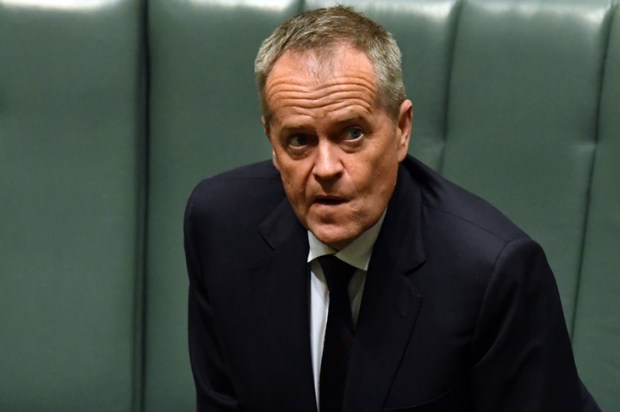
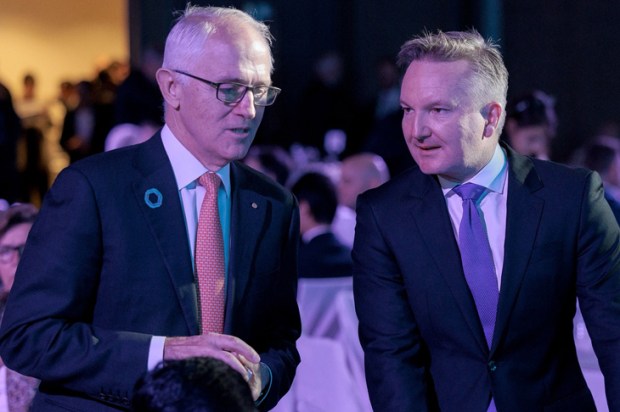






Comments
Don't miss out
Join the conversation with other Spectator Australia readers. Subscribe to leave a comment.
SUBSCRIBEAlready a subscriber? Log in